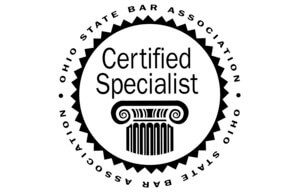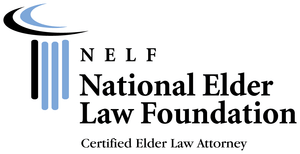Using Irrevocable Trusts in Medicaid Planning
/The Value of Using Irrevocable Trusts in Medicaid Planning
People often wonder about the value of using irrevocable trusts in Medicaid planning. Certainly gifting of assets can be done outright, not involving an irrevocable trust. Outright gifts have the advantages of being simple to do with minimal costs involved, including the cost of preparing and recording deeds and the cost of preparing and filing a gift tax return. Many financial institutions have their own documents they use for changing ownership of assets so there are typically no out-of-pocket costs for the transferor.
So, why complicate things with a trust? Why not just keep the planning as simple and inexpensive as possible? The short answer is that gift transaction costs are only part of what needs to be considered. Many important benefits that can result from gifting in trust are forfeited by outright gifting. These benefits are what give value to using irrevocable trusts in Medicaid planning.
Prior to state implementation of the federal Deficit Reduction Act of 2005 (DRA) in recent years (with the exception of California), federal Medicaid law contained a bias against trusts: Most transfers of assets to trusts had a 5-year lookback period, whereas there was a 3-year lookback period for non-trust transfers. This different standard induced many clients to elect outright gifting in preference to gifting in trust. The DRA leveled the playing field by imposing a 5-year lookback period for ALL transfers. Removal of the bias against trusts shifted the discussion of elder law attorneys with clients to the real benefits of gifting in trust versus gifting outright.
Key benefits of gifting in trust are:
Asset protection from future creditors of beneficiaries
Preservation of the Section 121 exclusion of capital gain upon sale of the settlors’ principal residence (the settlor is the trustmaker)
Preservation of step-up of basis upon death of the settlors
Ability to select whether the settlors or the beneficiaries of the trust will be taxable as to trust income
Ability to design who will receive the net distributable income generated in the trust
Ability to make assets in the trust noncountable in regard to the beneficiaries’ eligibility for means-based governmental benefits, such as Medicaid and Supplemental Security Income (SSI)
Ability to specify certain terms and incentives for beneficiaries’ use of trust assets
Ability to decide (through the settlors’ other estate planning documents) which beneficiaries will receive what share, if any, of remaining trust assets after the settlors die
Ability to determine who will receive any trust assets after the deaths of the initial beneficiaries
Possible avoidance of need to file a federal gift tax return due to asset transfer to the trust
We will briefly discuss each of these potential benefits in sequence. Each of these potential benefits depends on the specific language selected in the design and drafting the trust. None of them is automatic or inherent in every trust. Thoughtful planning and careful drafting is necessary to take advantage of the benefits available, thus it is important to understand how and why each benefit comes about. This is just an introduction to these topics, not a specific drafting guide. We are available to discuss any of these issues in more detail.
Asset Protection from Future Creditors of Beneficiaries
A central benefit of gifting in trust is to protect the gifted assets from the creditors and predators of the beneficiaries. This is accomplished by means of a spendthrift provision – special provisions in the trust that make trust assets not subject to attachment, foreclosure, garnishment, or a laundry list of undesirable actions by the creditors of the beneficiaries.
Preservation of Section 121 Exclusion of Capital Gain on Sale of Principal Residence
Section 121 of the Internal Revenue Code (Tax Code) creates an exclusion from capital gains tax of up to $250,000 of capital gain in the taxpayer’s principal residence when it is sold if the taxpayer owned and lived in it at least two of the past five years before the sale (only one of the past five years if the homeowner had to move to a nursing home). If there are two qualifying co-owners, they can each exclude $250,000 of gain upon sale in such circumstances. This is a very valuable benefit that has been in the Tax Code since 1997. A trust can preserve this benefit if it is a “complete grantor trust” – a grantor trust as to both income and principal. On the other hand, a residence gifted outright to someone and then sold by the successor would need to qualify for the Section 121 exclusion based on the ownership of the donee to avoid capital gain in excess of the adjusted cost basis of the donor. Our senior population often has owned their home since the late 1940s, 1950s or 1960s, so a huge amount of appreciation in value has occurred since then.
Preservation of Step-Up of Basis
When an appreciated asset is included in a decedent’s taxable estate for federal estate tax purposes, it receives step-up (or down) of basis to the date of death value under Section 1014 of the Tax Code. Normally gifted assets pass to gift donees with “pass through basis”; that is, the donees receive the assets with the donor’s adjusted cost basis, rather than the date of gift value of the assets. If, however, something pulls the assets back into the taxable estate of the donor upon the donor’s death, the donee will own the asset at that point with the donor’s date of death value as his or her basis, rather than the donor’s original adjusted cost basis. For highly appreciated assets, such as the donor’s home or stocks that he or she owned for a long time, obtaining step-up of basis can be a huge benefit for minimizing or eliminating capital gains tax when the donee later sells the assets. This benefit of step-up in basis can easily be forfeited by outright gifting. However, a provision in an irrevocable trust that pulls the property back into the taxable estate of the settlor upon the death of the settlor can preserve step-up of basis for benefit of the donee. With the amount of assets that can pass free of federal estate tax being well beyond the value of most Medicaid planning clients’ estates, estate inclusion and step-up of basis is generally a great benefit to design into the trust, without any actual tax liability. A Limited Power of Appointment retained by the settlor can accomplish this. Other provisions can also cause taxable estate inclusion.
Ability to Select Whether Trust Income is Taxable to Settlors or Beneficiaries
This brings us to the topic of “grantor trusts.” Grantor trusts are treated by the Tax Code as “owned” by the settlor (also called the grantor) for income tax purposes. As mentioned above, preservation of the Section 121 exclusion of capital gain upon the trustee’s sale of the settlor’s primary residence that was earlier funded into the trust requires that the trust be a “grantor trust” as to both income and principal. The creation and significance of grantor versus nongrantor trust status takes an entire seminar or article unto itself, so can only be touched upon lightly here. But the choice of whether a trust will be a grantor or nongrantor trust and how that will be accomplished are key design decisions. For example, it may be important that income generated in the trust not be taxed to the settlor. This requires nongrantor trust status, which necessitates that every trust provision that would cause grantor trust status be avoided in the drafting of the trust. In other examples, however, grantor trust status is important as a goal for tax reasons, or if the settlors are to receive income from the trust.
Ability to Design Who Will Receive Trust Income
Unlike an outright gift, by which the donor gives up the right to receive income generated by the transferred assets, an irrevocable trust can be designed so funding constitutes a completed gift for Medicaid purposes although the settlor reserves the right to receive income from the trust. This is an attractive option for some seniors, although it does result in an inherent downside for Medicaid planning purposes: Any income that the trustee has the power to distribute to the settlor will be counted for Medicaid eligibility purposes, even if the trustee decides not to actually distribute the income to settlor. Some seniors avoid trustee discretion by making distribution of all trust net income to them mandatory, rather than discretionary. In this case, the income would also be counted for Medicaid eligibility purposes as well. Others go the entirely opposite direction by prohibiting the trustee from distributing any income to the settlor, thereby ensuring that trust income will not be part of the settlor’s cost of care budget when the settlor is on Medicaid. There are several factors to weigh in such decision-making, but the key point for this discussion is that use of an irrevocable trust in Medicaid planning gives the client these design choices, whereas an outright gift does not.
Ability to Make Trust Assets Noncountable for Beneficiaries’ Medicaid or SSI
It is a sad fact that an outright gift or bequest from a donor, such as a parent, to a disabled donee can result in the donee becoming ineligible for means-based governmental benefits that he or she was eligible for before the gift or bequest, or soon would have become eligible for. In such situations, unless irrevocable trust planning is then done to establish a “self-settled special needs trust,” the gifted or bequeathed assets typically get consumed for the donee’s care and once they are gone, the donee goes onto the governmental benefits from which the gift or bequest disqualified him or her until consumed. One way of looking at this outcome is that the indirect recipient of the gift or bequest was the governmental benefit program from which the gift disqualified the disabled person for a period of time. This is generally considered poor planning.
Better planning is for the gift or bequest to be made in an irrevocable special needs trust for benefit of the disabled beneficiary, so the gift or bequest will be managed to enhance the living conditions of the disabled beneficiary by paying for things that the governmental benefits do not pay for. If a disabled person becomes entitled to an outright gift or bequest, or an outright gift or bequest recipient later becomes disabled, depending on the age of the disabled person, it may be possible to establish a “self-settled special needs trust” for the disabled beneficiary. Such trusts (funded with assets of the disabled person) must contain a provision stating that upon the death of the disabled beneficiary any remaining trust assets must pay back the state up to the full amount of Medicaid benefits received by the beneficiary, and only after the state is reimbursed may any excess pass to other beneficiaries such as other relatives. The payback provision requirement is Congress’s “quid pro quo” – the balancing deal that makes it fair for the disabled person’s otherwise disqualifying assets to be set aside in a Medicaid- and Supplemental Security Income-noncountable trust that is nonetheless able to be consumed by the trustee for benefit of the disabled person to supplement but not replace the governmental benefits.
Ability to Specify Terms and Incentives for Beneficiaries’ Use of Trust Assets
Many parents or grandparents desire to infuse their planning for their children or grandchildren with positive aspirations. Such goals may be as simple as that the gifts or bequests may only be used for the recipients’ education, to finance a career change or buy a home. Or the goals may be more serious, for example, establishing that the intended recipient will only become eligible to receive the gift or bequest if he or she participates in a drug or alcohol rehabilitation program or gives up some other behavior that the donor wants to create an incentive for the donee to abandon. Such planning goals of a client almost always indicate an irrevocable trust with beneficiary incentive provisions as the vehicle to implement the plan. This is completely compatible with Medicaid asset protection planning for seniors at the same time.
Ability to Decide Which Beneficiaries Will Inherit Upon Settlor’s Death
The retained Limited Power of Appointment referred to above (sometimes called a Special Power of Appointment) preserves for the settlor the power to decide who within a designated class of recipients will receive the benefits of the trust, how much they will receive, and in what way they will receive it. The class of potential recipients can be as broad as everyone in the world except the settlor and his or her creditors, and the settlor’s estate and its creditors. Most often, however, the class of potential appointees consists of the settlor’s descendants, certain other relatives or in-laws, and/or certain charities. Such a Limited Power of Appointment (LPOA) can determine whether the trust is a grantor or nongrantor trust, as well, so the specific language of the LPOA must be crafted carefully with regard to the grantor trust rules of the Tax Code. As an aside, a power of appointment is sometimes referred to jokingly as a “power of disappointment” because it truly retains for the settlor or other power holder the power to disinherit someone who acts badly.
Ability to Determine Successor Beneficiaries
A major concern in Medicaid asset protection planning and estate planning in general is who will be the successor beneficiaries of anything a client leaves to someone. If the gift or bequest passes outright, the recipient has control through lifetime consumption of assets and income or through his or her estate plan, to determine who will receive anything that the initial recipient doesn’t use up. Of course, the recipient’s creditors or predators also may gain control over the assets and income gifted outright to the initial recipient. If the client would prefer to designate that only blood descendants, or descendants and their spouses, and/or certain charities will receive what is not consumed by the initial recipient, an irrevocable trust is a key instrument to create such a plan. This is true almost regardless of the initial size of the gift or bequest – if a modest amount of funds are left in trust, there may nevertheless be a remainder to pass to a successor beneficiary or even another successor beneficiary. This sounds like a “dynasty trust” and it actually is, even though it is of modest size. The point is that by use of an irrevocable trust, the client has the option to decide who the possible recipients will be, and even to grant limited powers of appointment to the named recipients in order to give them some control as well.
Analysis of Need to File a Federal Gift Tax Return for Year of Funding
A goal of many planners in design of irrevocable trusts is to make the initial trust-funding gift(s) “incomplete” for tax purposes. The purpose is generally to prevent the settlor from having to file a federal gift tax return for the year(s) of the funding transaction(s), assuming that the taxpayer makes no other “taxable gifts” in any such year.
There is a split of authority with the Internal Revenue Service concerning when transfers to an irrevocable trust are considered “complete,” thus requiring the filing of an income tax return. Normally there will not be any gift tax due (the 2022 laws allow an individual to give away $12.06 million in assets during her lifetime without paying any tax on the gift) but it is important to follow the rules that do require filing a gift tax return, even if no tax is due. We are happy to assist with this analysis.
Conclusion
The above discussions demonstrate that use of irrevocable trusts in Medicaid planning, as in other fields of estate planning, provides many opportunities to create great benefits beyond simply transferring assets. Some or most of these benefits may be achieved through the use of an irrevocable trust. If care is taken to include the desired provisions, an irrevocable trust can greatly enhance the value of the clients’ Medicaid planning beyond what can be accomplished through outright gifting.
We are happy to assist seniors and their loved ones with considering whether an irrevocable trust may be appropriate for them. Please contact our office to schedule a time to discuss these issues further.
To comply with the U.S. Treasury regulations, we must inform you that (i) any U.S. federal tax advice contained in this article was not intended or written to be used, and cannot be used, by any person for the purpose of avoiding U.S. federal tax penalties that may be imposed on such person and (ii) each taxpayer should seek advice from their tax advisor based on the taxpayer's particular circumstances.





